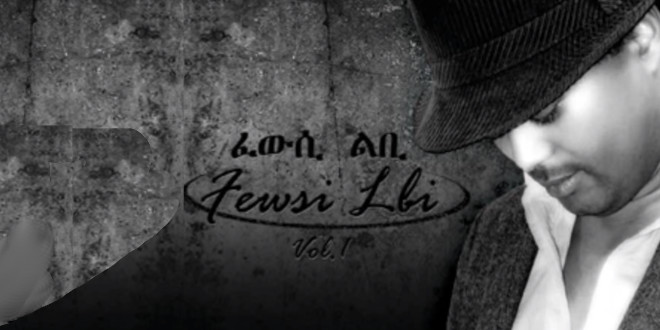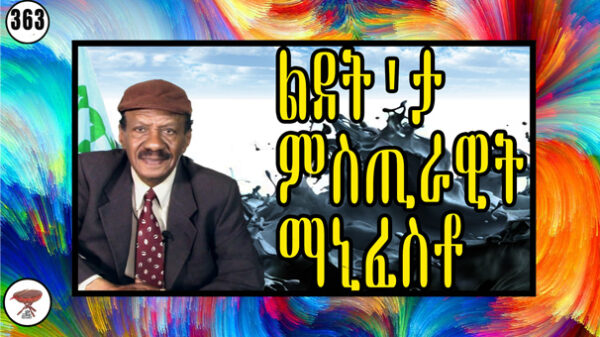Scent of Lemon: An Example Of Refined Eritrean Song
My taste in music is unusual, not many songs please me. My aversion to saxophones is unmatched, but I love wooden instruments, the traditional flute, the Andean reed zambona, fisarmonica, Congo drums, rebaba, and the violin. The saxophone, however, scares me more than the sight of a Black Mamba snake. I wish Eritrean musicians introduce other instruments, the world has many of those and it’s okay to borrow.
I am into folk songs; that is why I tolerate country music, even those with awful lyrics, like “boiled potatoes burned my fingers…” Or the Eritrean version, “entay’eye zgebro n’msheto, karabata ‘ndidelu nay sembetu.”
In my childhood, I was caught listening to James Brown in my father’s shop when my father walked in with Ustaz Mahmoud Mohammed Ali, the famous school director who mocked the song: “James Brown stands on stage and when someone walks in, he asks them, where did you come from?” The person replies, “From California.” Then James Brown asks: “Hey, dib California zellim halet? (Is it raining in California?) The man replies, “yes, heavy rains.”
Then James Brown screams, “Yeah, rain’n in California, yeaaaaaah, yeah. Heavy rain in California. Yeeeeeeeah, baby.”
My father laughed and I was embarrassed to even more. But at the time, considering my limited knowledge of the English language and the difficulty one faced understanding the words of popular songs, such simple lyrics did it for me. Tom Jones sang “She’s a lady…” but my generation heard it as “Sheeezeley.” And life was easy, and so was the English language.
I would have given up on modern Eritrean songs if not for the likes of Osman Abdulrahim, Ateweberhan Segid, Tekle Tesfazghi, Hussein Mohammed Ali, and of course, Wed Amir… and a few others. However, nothing beats the ease of strumming of the Rababa from Western Eritrea; I rarely find anything to enjoy from the screeching songs that come out of the PFDJ monopoly of the arts.
Then come Wedi Tikabo. I liked his songs, which unfortunately I listened to it in my seclusion. I didn’t like to be caught listening songs that promote the PFDJ regime, in any way. That is history. Yohannes Tikabo liberated me by openly rejecting tyranny. Now I can express my subdued love for his songs.
But before all the other singers, at least in North America, there was Dawit Ephrem, the only free singer who entertained the opposition camp’s functions. Those were the days when two or three dozen of us would sit in an almost empty hall listening to him. Those of you who have the urge to forget, remember that in the beginning there was Dawit Ephrem of Dallas. And I encourage icons like Wedi Tikabo to appreciate and recognize the relentless struggle those erstwhile artists waged single-handed–no financial rewards, no inspiring crowds, and very little recognition. Our nation’s artistic culture grows only by recognizing and encouraging those who sacrificed personal gains for public service. Remember Eyob, Osman and Hussein in Europe–and my “Hsas ldde” brother, Ahmed Abdulrahim!
Back to Wedi Tikabo.
The first time I saw him perform live was at the new year eve party organized by the pro-justice crowd in Oakland. He was an amazing artist. In that party, I really enjoyed myself and was assured that we have come a long way in salvaging our culture. However, there remained a critical distance we have to tread before we arrive at our destination: eradicating the parasitic PFDJ and its vulgar culture and screeching sponsored propaganda songs.
I drafted this Negarit on the first week of 2014 and decided to keep it on pending not to antagonize some people–in fact I deleted almost all the original draft; I do not need to annoy more people. But now, I think it’s time to say a few words about my observations at that “party” because it’s being duplicated elsewhere. I hope no one will be offended; this is supposed to be a call for reflection.
A function organized by the opposition to the PFDJ should not be a copy of the PFDJ culture and style–identical mannerism, colors, and songs. They say, “a few rotten potatoes spoil the soup,” and I am sure there are incidents of ugly sights elsewhere. Pick two-party video clips, one of the PFDJ camp and another from the Justice seekers’ clips. Pretend you do not know the singers, the crowd or the event. Now see if you can tell them apart! That would only be annoying if it was not outrageous.
Respectable functions have codes that differentiate them from rowdy nightclubs. Our national functions are not occasions for pornographic dancing and a drinking binge, even if we need to have fun, and we need it more than any other people. However, we need to remember that families avoid rowdy nightclubs not to mingle with social outcasts. Eritrean events should be a dignified family function, just like a wedding party, and the ambiance should be different from that of an alley nightclub, or a PFDJ function.
There are evident behavioral ethics that are observed in wedding parties, including the dress code and ambiance. People enjoy themselves and dance until they are exhausted and drop in their seats as dead bodies. They are elegantly dressed, in their best, maybe a cultural dress, and they show off their dancing skills and smile all night. Everyone is happy and all go home rejuvenated. Unfortunately, neither the parties of the justice seekers nor that of the PFDJ are anything like that.
What’s up with dressing like hookers and gangsters in a party that is supposed to be in support of a national cause? What is with the three-sizes smaller pieces of cloth, boobs hanging out and skirt hem hardly covering panties; and sagging pants that show greasy underwear? Maybe some people are convinced it is the way to look cool, to look modern and civilized. But I am sure there are many stores where one can buy decent clothes, and ways to be decently dressed. No? Maybe not. But I don’t think the parties of justice seekers should look like a scandalous scene from Babylon Square–for the young, Babylon Square was the Asmara version of a Red Light District.
The young might want to go to wild nightclubs, but that is not my concern. I am concerned with the manners of the cheap nightclubs being brought to supposedly “national functions.”
In the Oakland party, Tigisti, one of the MCs, stated, “tonight should be a turning point just like 1988 became a turning point after the defeat of the enemy at the battle of Afabet.”
Do you see anything wrong with that? I don’t. But a young tipsy boy with embarrassingly sagging pants had a different idea: “Kla Gdefenna, 88 ane kheman ayteweledkun nere!” Forget 1988, because he was not even born then! It was all about him. Eritrean history begins with his memory; what he doesn’t remember should be trashed. I was going to engage him, but a visibly intoxicated girl pulled him away to a corner before I could talk to him. I wished he stayed in Sawa or at least in Shimelba some more instead of getting further away without learning the significance of the battle of Afabet. But there is always mercy!
Luckily, as if to ameliorate the scandal, Wedi Tikabo appeared on the stage to sing GuE Leminey (my lemon scent), an authentic country song, original, unadulterated, fresh flavored Eritrean song… as fresh as “Morning-Water.” What a contrast!
For those who do not understand Tigrinya, GuE Leminey is all about owning our heritage and being proud of it. To me, this song is a rejection and anti-thesis of the PFDJ that has corroded the Eritrean culture. It’s about reviving the pristine tradition that we are losing fast because of the PFDJ monopoly of the arts.
Not knowing the lyrics suck, and I am sure those who do not master the Tigrinya language would appreciate my translation–try to sing it along, you will learn a few words and feel good about your culture–can someone transcribe the lyrics in Tigrinya? Until then, here is the translation, though I have taken the liberty to alter the construction of some words to make it understandable in English. Corrections are welcome.
My Scent of Lemon (The Medicine of The Heart)
Wedi Haile, the pot breaker
I was afraid he will meet you in his rages of anger
I was on guard since down
Afraid he was lurking to get you.
By the meadows, by the grassy fields
Chatting all day long
You showed me what you can do
And you taught me the meaning of love
Oh my fresh barley kernel, while we devoured our passion
As the village girls watched
And they peeked and sang
Taunting me day and night.
Oh, my scent of lemon, take a walk
Come, stay with me by the meadows.
Oh, my scent of lemon, take a walk
Come, stay with me by the streams.
In the crowded tent-party in our village
You surpassed all the veiled dancers.
The youth of the village have seen it all
They enjoyed the night beating the drums.
But it was terrible for me, watching over you all night
I feared kidnappers might snatch you away
When I couldn’t find you in the party
I had a sleepless night searching for you
But as dawn broke
You soothed my heart with a smile
Though I was afraid, it would be detected
And your bright smile might invite jealousy
And other maybe inflicted with what I was
For I know in love caution is lost.
Oh, my scent of lemon, take a walk
Come, stay with me by the meadows.
Oh, my scent of lemon, take a walk
Come, stay with me by the streams.
Yes, by the Meadows…
What am I to do?
My love, what am I to do?
My love, what am I to do?
I’d rather end it believing love is compassion.
Wedi Haile the pot breaker
I was afraid he will meet you in his rages of anger
I was on guard since down
Afraid he was lurking to get you.
In the meadow, by the lash lawns
Chatting all day long
You showed me what you can do
And you taught me the meaning of love
Oh my fresh barley kernel, while we devoured our passion
He has become a hindrance in the middle of our village
Shall I hide and pull a sling on him
Whatever the village people may say.
Oh, my scent of lemon, take a walk
Come, stay with me by the meadows.
Oh, my scent of lemon, take a walk
Stay with me by the streams.
I have my limits and it’s not much
I live by the means I command
Your folks used to honey and butter
Might think I am after a fat dowry
Forty cows and forty young bulls
The lack of which stripes me of my courage
You should pity me
What does my house have but a bedding of hides?
And you know my skin bedding
It’s cold though you say it is cozy
You are what I wish for
Take my name, go ahead and own it
That’s not much of an offer for you
I may split my heart and give you its half.
Oh, my scent of lemon, take a walk
Come, stay with me by the meadows.
Oh, my scent of lemon, take a walk
Come, stay with me by the streams.
Yes, by the Meadows…
What am I to do?
My love, what am I to do?
My love, what am I to do?
I’d rather end it believing love is compassion.
Yohannes Tikabo is a man who inherited the husky voice of Barry Water and he is a class of his own. He has also inherited the melancholic style of his father, an established artist of his time, and the romantic style of Marvin Gaye. If Jimmy Hendrix was an Eritrean, he would have earned his fame as a Krar player like Yohannes Tikabo, not the guitar. However, Wedi Tikabo is no one but Wedi Tikabo. He is a top-notch artist and he doesn’t need to be reduced to anyone else, not even to the level of Bob Marley.
I am not sure who writes his lyrics, but they are so original, so poetic, and genuinely Eritrean as he sings for his country, for the legacy of the struggle, always remaining true to the Eritrean heroes; I have a feeling they all shake their shoulders, dancing in their graves whenever he sings, and his voice relaxes them. Yes, certainly he moves the dead.
And who was dancing the night away, in Oakland? Peace-loving, justice-loving Eritreans. His supply of energy reached every nerve in the hall; bodies, limbs, heads moved and shook impulsively. His intro words for his next songs, “Gesha Ala ‘mber tet’hulu Ghedli” were so powerful, I could feel the roof of the hall shaking, announcing the presence of a majestic voice. Indeed, the struggle has taken an excursion, it spirit is away. But Wedi Tikabo was needed to give the justice seekers an impetus, and he still needs to give us more. His focus on unity (what we at awate.com call Reconciliation) is so powerful it instantly makes one remember what is at stake. In a traditionally delivered ode, he explained how a seed should not be divided. Of course, a broken seed is not a seed anymore. Divided Eritreans are Eritreans no more.
Wedi Tikabo joining the justice seekers camp heralded the end of the cold years where the opposition elements were in the minority. Not anymore. Free Eritreans will not be harassed, not anymore. The days of looking towards all directions only to find handful persons are gone, now one stands in the center and is overwhelmed by the crowd. The chilling loneliness of the opposition camp is now as warm as ever. This is a reward that we sometimes forget to celebrate. It is payback. I wish the new blood of strugglers would be endowed with wisdom and blessed with a national eye-glasses that see beyond the narrow circle of our comfort. It is time to think about diversity seriously, not in words, but in spirit coupled with deeds.
Finally, I plead to all artists to provide music that would shake even the stone-hearted. To provide music that would motivate the justice seekers, not just dancing music–we have tons of those. And Yohannes Tikabo, I wish he will produce more powerful contemplative lyrics and fewer dance tunes. Music that would help us sharpen our minds and think clearer.





Awate Forum